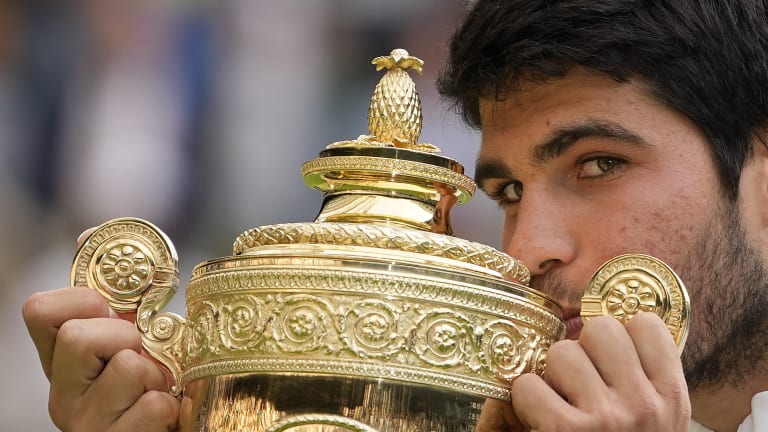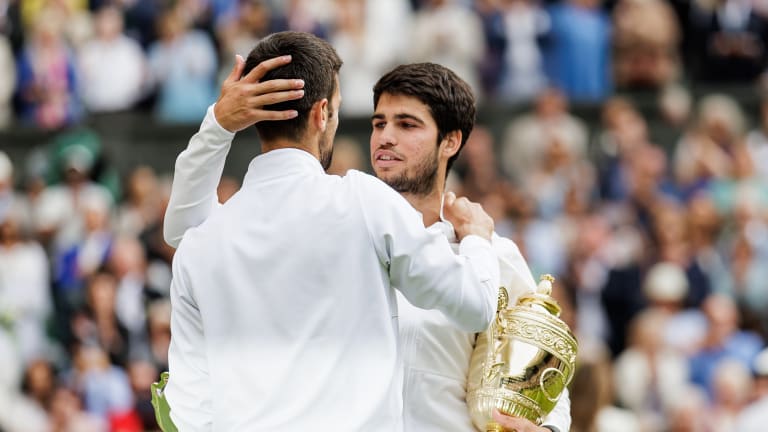Wimbledon
Wimbledon champ Carlos Alcaraz shows us there’s no need to rein in expectations for him
By Jul 16, 2023Wimbledon
Wimbledon to replace line judges with electronic line calling from 2025
By Oct 09, 2024Wimbledon
The amazing journey of Henry Patten from IBM data logger to Wimbledon doubles champion
By Jul 16, 2024Wimbledon
Hsieh Su-Wei, Jan Zielinski win mixed doubles title at Wimbledon
By Jul 15, 2024Wimbledon
Why Wimbledon Endures
By Jul 15, 2024Wimbledon
Novak Djokovic seeks 2024 answers for Alcaraz and Sinner after great effort: 4 ATP Wimbledon takeaways
By Jul 14, 2024Wimbledon
Carlos Alcaraz is a champion establishing how high he will climb with latest Wimbledon title
By Jul 14, 2024Wimbledon
Nicolai Budkov Kjaer makes history in winning junior boys' Wimbledon title; Renata Jamrichova wins girls' title
By Jul 14, 2024Wimbledon
Carlos Alcaraz beats Novak Djokovic again in Wimbledon final for fourth Grand Slam title
By Jul 14, 2024Wimbledon
For Jasmine Paolini, Barbora Krejcikova was one forehand and one serve too good in the Wimbledon final
By Jul 13, 2024Wimbledon
Wimbledon champ Carlos Alcaraz shows us there’s no need to rein in expectations for him
The Spaniard has always been an athlete and shotmaker extraordinaire. Now we know he can be a winner, too—against any opponent, on any court.
Published Jul 16, 2023
Advertising

Alcaraz and Djokovic have split the last four major titles.
© Copyright 2023 The Associated Press. All rights reserved
Advertising
Advertising
Advertising

After going more than a year without facing off on court, Djokovic and Alcaraz have now split clashes at the past two majors.
© Getty Images